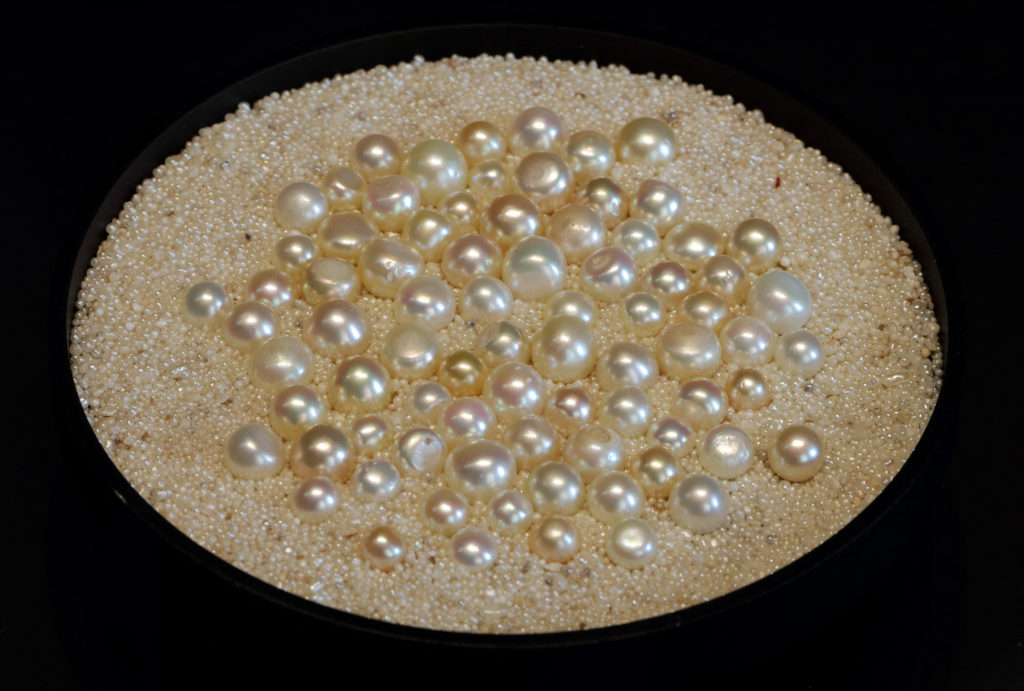São Paulo – Bahrain has concluded the first phase of a study project to ensure sustainable pearl fishing practices, the Bahrain News Agency reported. The study by the Bahrain Institute for Pearls and Gemstones (DANAT) suggests that there were no significant differences in the population density and abundance of the pearl oyster beds in the country between 2012 and 2021.
As a result, the pearl oyster beds are not experiencing depletion and their stock remain consistent. The study also identified demographical changes in the oyster population structure, from a dominant older generation to a younger generation, which need to be examined further.
The research study conducted by DANAT was commissioned to assess the impact of the National Plan to Revitalize the Pearl Sector on the pearl beds after its debut in 2017. The research team surveyed chosen places like Hayr Bu Ammamah, Hayr Bul Thamah, and Hayr Shtayyah, as well as the famous pearl oyster beds at Fasht Al Adham during the initial phase of the project. The study’s purpose was to provide policymakers with a statistical analysis of the current state of the pearl oyster beds and to make recommendations to ensure sustainable pearl fishing practices in Bahrain.
The Supreme Council for Environment of the Arab country has undertaken an important role to revive Bahrain’s pearling industry and has organized a series of training courses for applicants who wish to obtain an oyster-harvesting license. These courses included an explanation of oyster-harvesting regulations and how to preserve this natural wealth and utilize it in a sustainable manner that ensures the preservation of the marine environment. A set of training programs and workshops for divers was held to encourage the preservation of this profession.
DANAT CEO Noora Jamsheer said that the research will produce recommendations for the sustainability of Bahrain’s pearl oyster beds. The study is conducted in partnership with the Supreme Council for Environment and the Directorate of Fisheries at the Ministry of Works, Municipalities and Urban Planning of the Arab country
Translated by Guilherme Miranda




